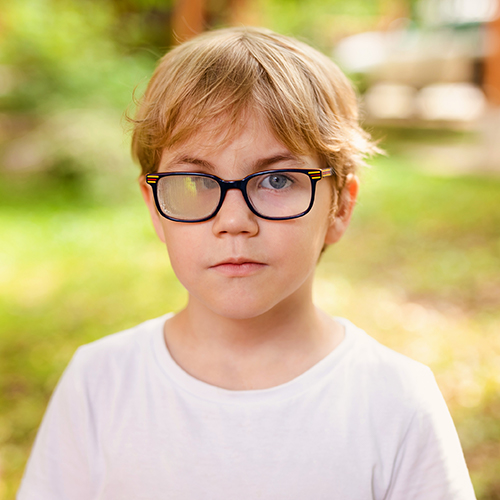Strabismus & Amblyopia

Strabismus and Amblyopia
For children, healthy vision involves both eyes working together to process information accurately and efficiently. Two common conditions that interfere with this process are Strabismus and Amblyopia. These vision disorders often develop early in life and can have a lasting impact on a child’s learning, coordination, and self-esteem if left untreated.
At Carolina Vision Rehabilitation, Dr. Angela Bergin specializes in identifying and treating functional vision problems that may be holding your child back. With the right diagnosis and a personalized vision therapy program, children with Strabismus or Amblyopia can build stronger visual skills and experience meaningful improvements in daily life.
What Is Strabismus?
Strabismus, commonly known as crossed eyes or an eye turn, occurs when the eyes do not align properly. One eye may turn inward, outward, upward, or downward while the other eye remains focused. This misalignment can be constant or intermittent and may shift from one eye to the other.
The brain struggles to merge the two different images received from the eyes. As a result, it may suppress the image from the misaligned eye to avoid double vision, which can lead to further complications like Amblyopia.
What Is Amblyopia?
Amblyopia, often called “lazy eye,” happens when the brain favors one eye over the other, leading to reduced vision in the weaker eye. This condition is not caused by any eye disease or structural issue; instead, it's the result of poor visual development in early childhood.
How Strabismus and Amblyopia Affect Vision
Strabismus and Amblyopia can significantly affect a child’s ability to read, write, play sports, or even maintain focus in the classroom. These conditions interfere with binocular vision (the ability of both eyes to work together) making it difficult to judge depth, perceive 3D images, or process visual input efficiently. Untreated, these conditions may lead to lifelong visual impairment, reduced academic performance, poor coordination, and low self-esteem.
How Vision Therapy Can Help
Vision therapy is a customized, non-invasive treatment program designed to strengthen the connection between the eyes and brain. Through a series of in-office and at-home exercises, patients develop the visual skills necessary to overcome Strabismus and Amblyopia.
For Strabismus, therapy helps train the eyes to align and work together. For Amblyopia, therapy stimulates the weaker eye and teaches the brain to use both eyes in unison. This approach is especially effective when started early, though many older children and adults also benefit.
Benefits of Vision Therapy for Children
Improved depth perception and spatial awareness
Enhanced reading and academic performance
Better eye coordination for sports and everyday tasks
Increased confidence and reduced frustration
Long-term visual development that supports future success
Vision therapy doesn't just address symptoms. It focuses on correcting the root cause of how the eyes and brain work together. At Carolina Vision Rehabilitation, Dr. Bergin works closely with each family to create a treatment plan customized to their child’s specific needs and goals.
Connect with Carolina Vision Rehabilitation Today
Strabismus and Amblyopia can affect a child’s ability to learn, play, and engage with the world around them. For families in Charlotte and the surrounding areas, early diagnosis and treatment are key to preventing long-term visual challenges. With the support of a dedicated team and a personalized vision therapy program, many children can strengthen their visual skills and gain more confidence in daily life.
If you suspect your child may be struggling with vision issues, contact Carolina Vision Rehabilitation to schedule a functional vision exam with Dr. Angela Bergin to learn more about vision therapy.


